Shared Legacies: Future of Black Jewish Solidarity Discussed
Dr. Tarece Johnson moderated a panel discussion, touching on the film “Shared Legacies,” and black-Jewish solidarity.
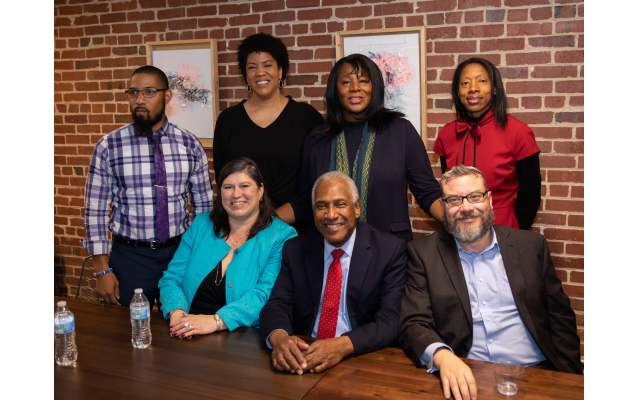
Following the Atlanta Jewish Film Festival’s opening night screening of “Shared Legacies: The African-American Jewish Civil Rights Alliance,” leaders and members of Atlanta’s black and Jewish communities came together at Ponce City Market Feb. 19, for a discussion on the film and the future of the partnership.
Sponsored by Alliance for Black Lives, The Global Purpose Approach, 18 Doors, March on Georgia, Jewish Community Relations Council, Justice Fighter and NAACP Atlanta, the evening featured a panel discussion moderated by Dr. Tarece Johnson, an educator, activist and diversity professional.
Prior to the panel, Rabbi Malka Packer-Monroe of 18 Doors, formerly InterfaithFamily, whose office is a short walk from the event location, welcomed the over 50 attendees.
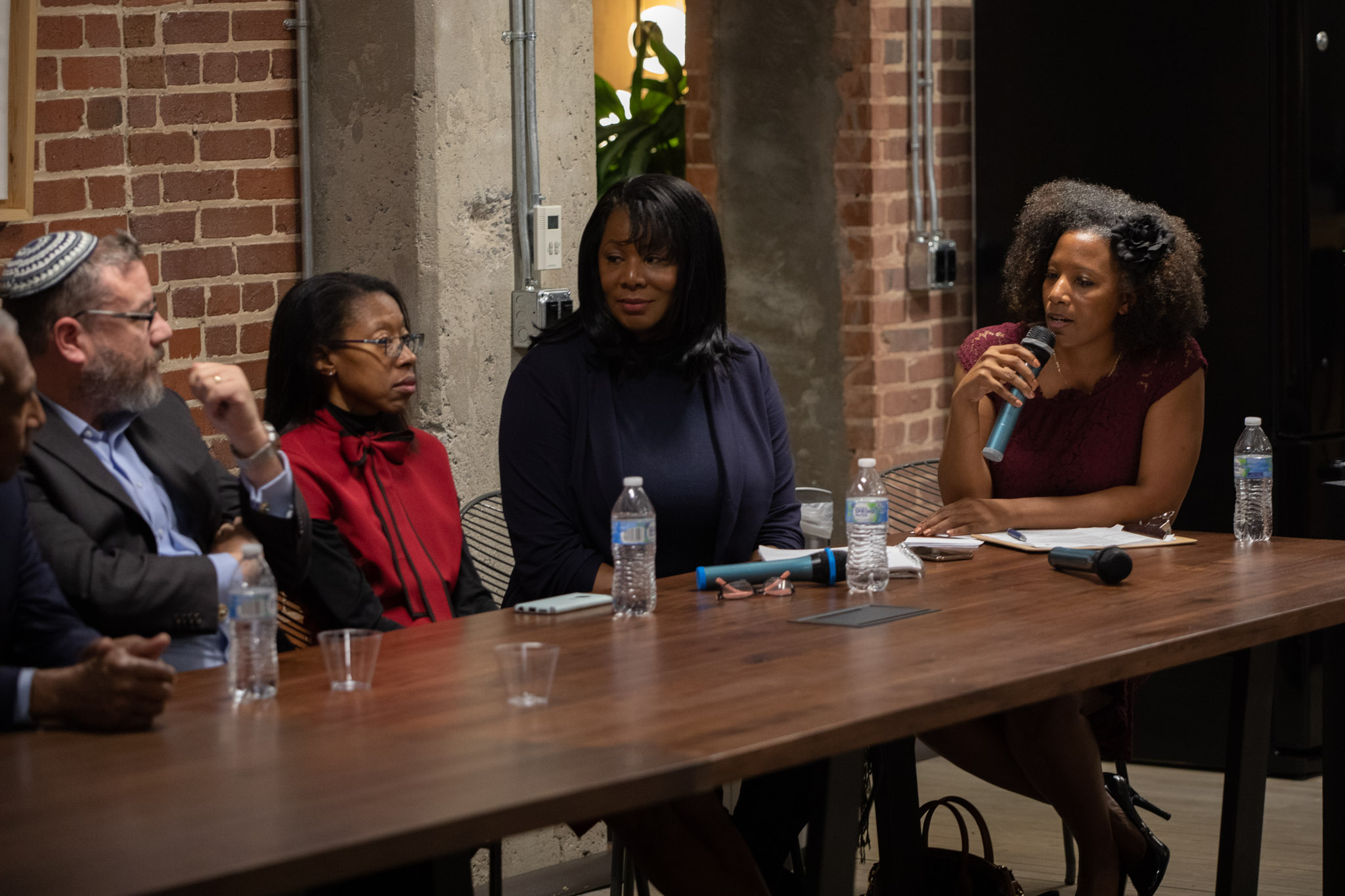
The panel included black and Jewish leaders as well as black Jews who shared their experiences.
Panelists were activists and educators: Richard Rose, Rabbi Michael Bernstein of Gesher L’Torah, Marla Cureto, LaMar Walker, Victoria Raggs, Chinita Allen and Leslie Anderson.
One common question during the discussion with the film as a backdrop was: What happened to change the partnership between African Americans and Jews. In part, the film touches on the decline of black-Jewish cooperation after the deaths of Dr. Martin Luther King Jr. and Rabbi Joshua Heschel.
Walker, a counselor, grew up in an African American Jewish community.
“Hebrew was taught to me by people who looked like me,” he said. “It was only when I moved to the South that my black-Jewish experience became rare, not because we don’t exist but because Christianity is the norm, and my existence in the South can be met with skepticism and hatred.”
He shared questions he’d been asked while in Jewish spaces, such as, “Did you convert?” and when he answered in the negative, “Are you sure?” To bridge the gap, he suggested education had to be the first step.
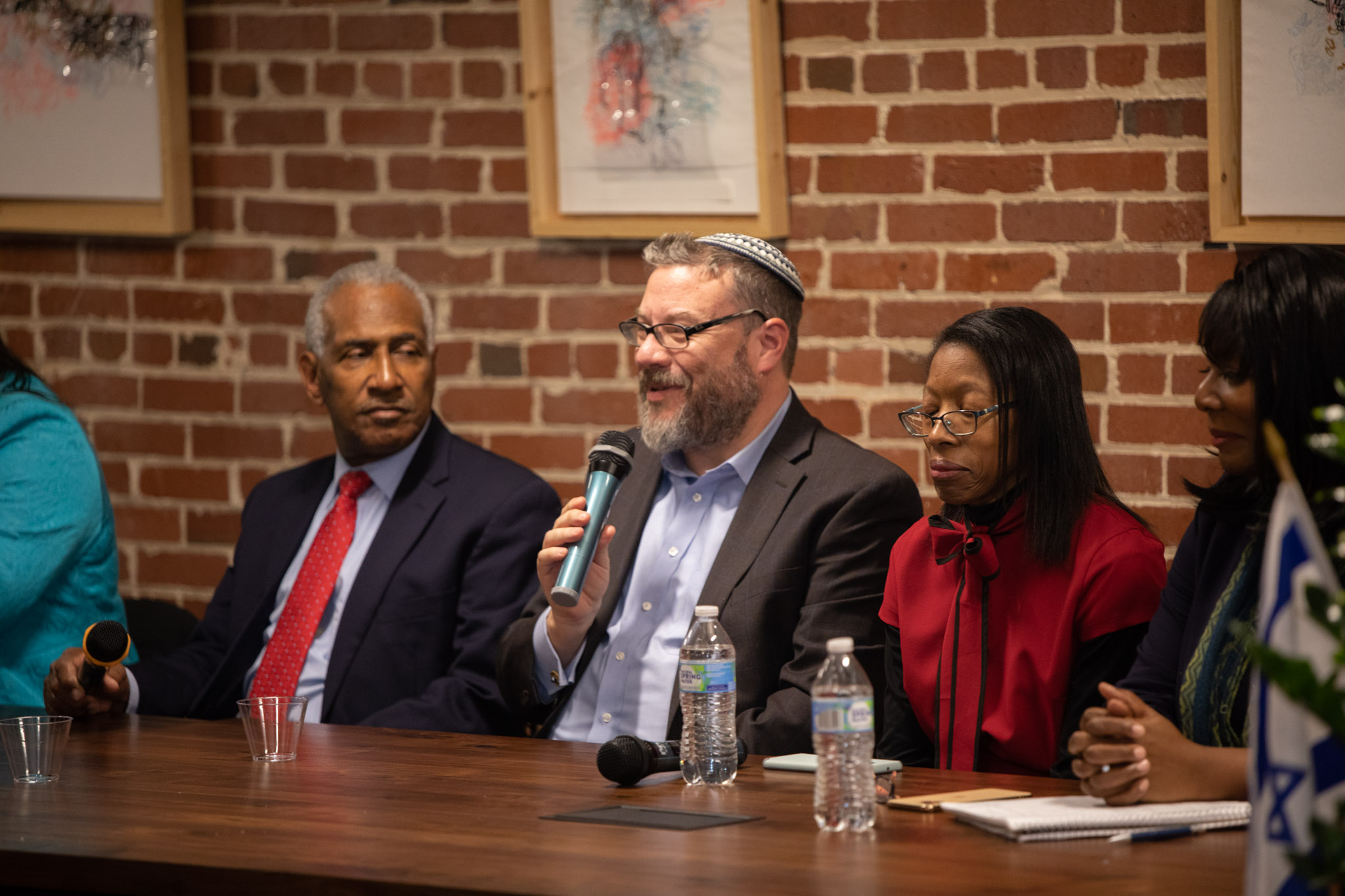
“There needs to be education about what being Jewish looks like, … It doesn’t have a color,” he emphasized.
Raggs is an active member of the Jewish community whose children have attended the Atlanta Jewish Academy, The Epstein School, and The Weber School. She explained that even as her son is one of the most popular kids in school, she has to have different conversations with him than his peers do with their parents.
“What makes him very different is that I have to explain to him that when you see a police officer, unlike your friends, you have to be very careful,” she said. “No one else in his class has to hear that.”
Cureto explained that accurate history-telling is essential to bringing communities together, whether that is around slavery, the Holocaust or more recently education on immigration.
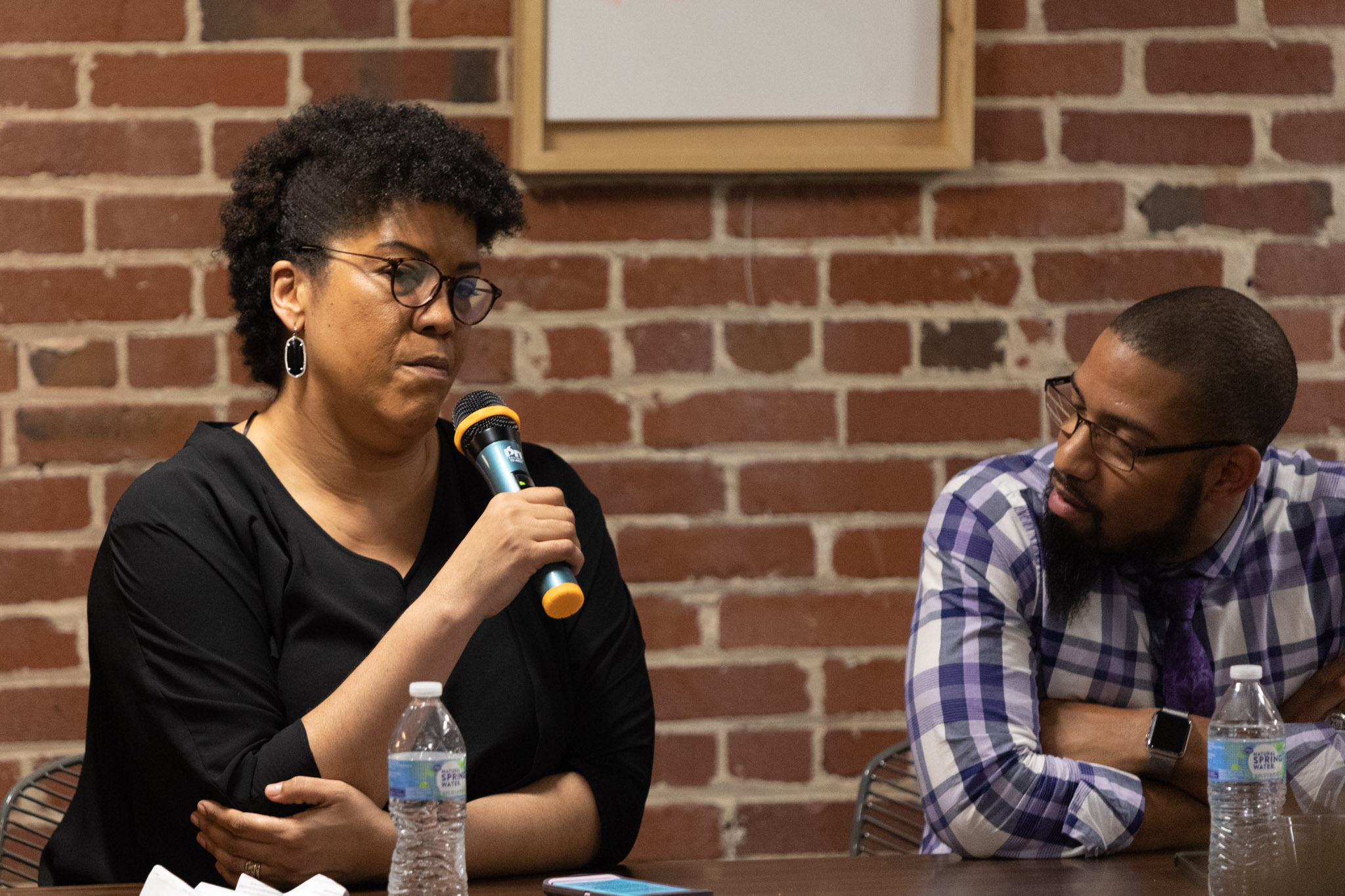
Anderson reflected on her experience at Atlanta’s solidarity event after the anti-Semitic stabbings in New York and New Jersey, and how tangible fear in the room was.
“I realized that fear may be the same that our African American friends – particularly African American Jews – feel when there is a police officer sitting at the doors of a synagogue,” she said.
One theme touched on in the film and discussed by the panel is the role that the Israeli-Palestinian conflict played in dividing many black and Jewish voices in recent years, Bernstein reflected on his experience following along on Twitter as those marching in Ferguson received advice from Gazans on what to do if tear gas is used.
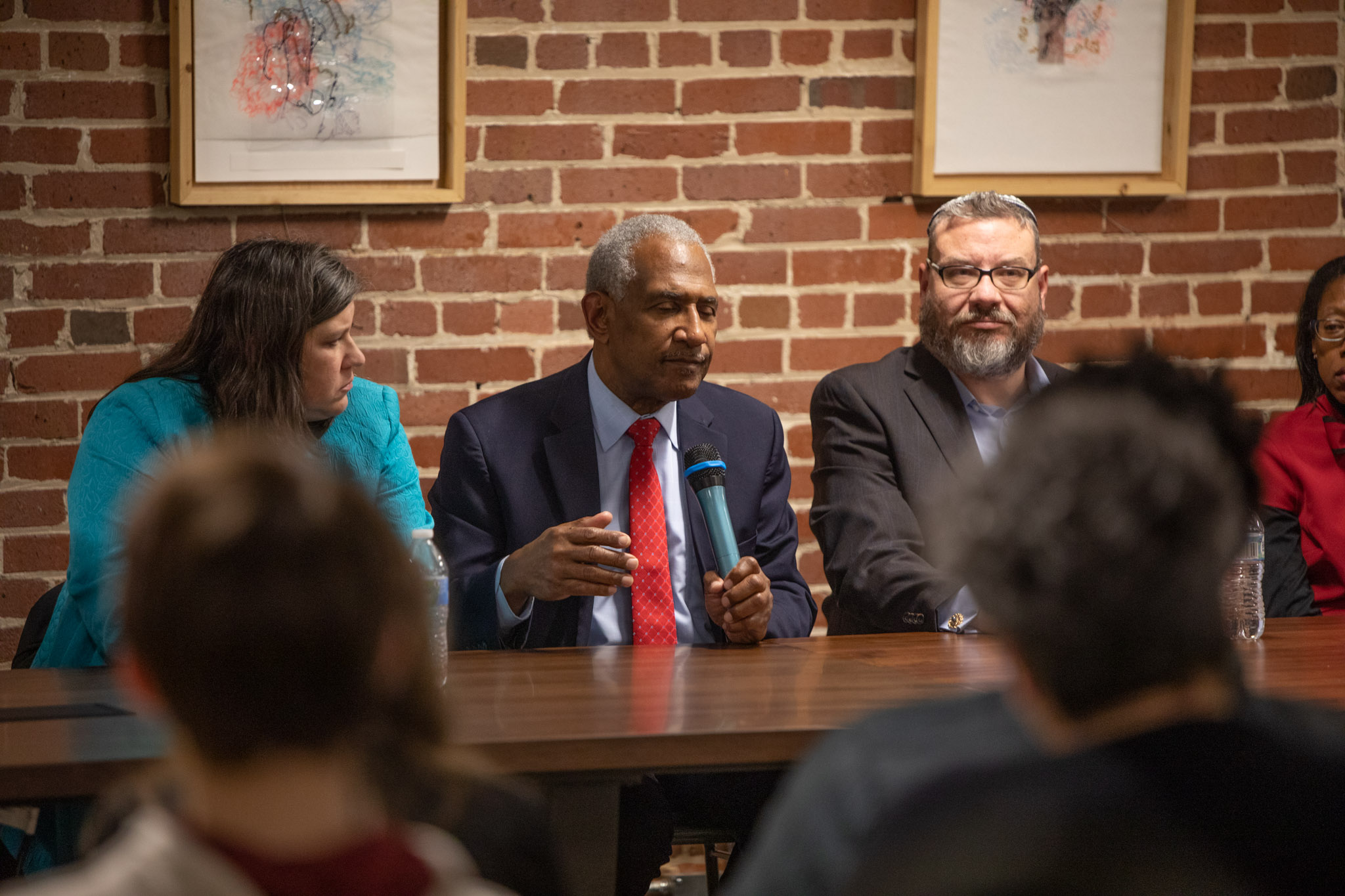
Rose, president of the NAACP Atlanta, summed up the topic.
“Being against Trump doesn’t make you anti-American. Being against Netanyahu doesn’t make you anti-Israeli and being against some Israeli policies does not make you anti-Jewish,” he said to applause from attendees.
The evening concluded with concrete steps forward, first and foremost voter registration and combatting voter suppression. Also, of the utmost importance, Georgia’s hate crimes legislation, which is currently awaiting a state Senate vote; Confederate monument removal; and the upcoming 2020 census, which is used to determine funding as well as representative distribution.
Johnson shared her reflections following the event.
“My hope is for this discussion to continue, for relationships to be created and strengthened, and for deliberate actions to happen in collaboration and solidarity,” she said.
- Eddie Samuels
- Local News
- Community
- Rabbi Michael Bernstein
- Gesher L'Torah
- NAACP
- Richard Rose
- Marla Cureto
- Dr. Tarece Johnson
- Lamar Walker
- Chinita Allen
- Victoria Raggs
- Leslie Anderson
- JCRC of Atlanta
- Alliance for Black Lives
- The Global Purpose Approach
- 18 Doors
- Jewish Fertility Foundation
- Justice Fighter
- Rabbi Malka Packer-Monroe
- Shared Legacies
- Shared Legacies: The African-American Jewish Civil Rights Alliance
- AJFF



comments